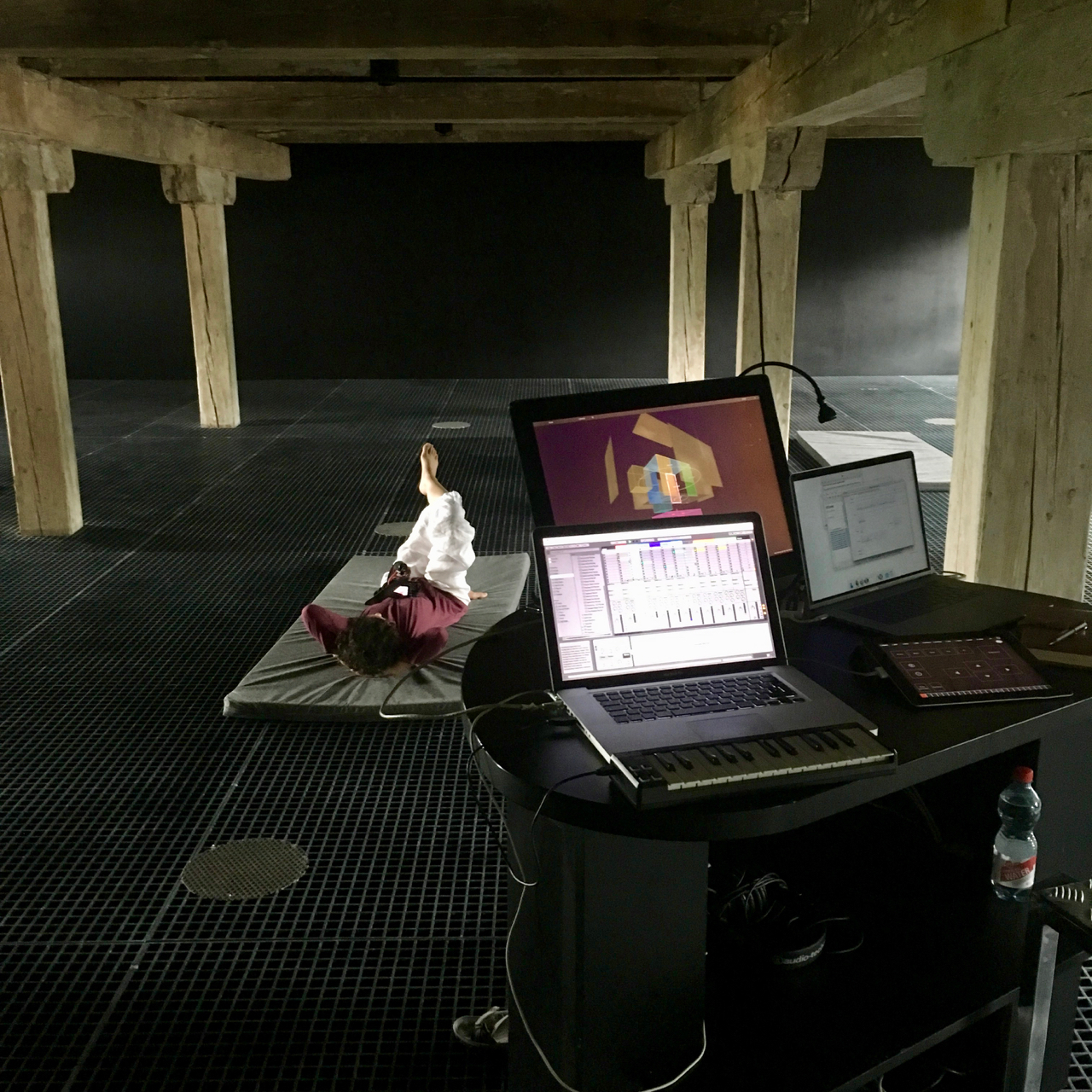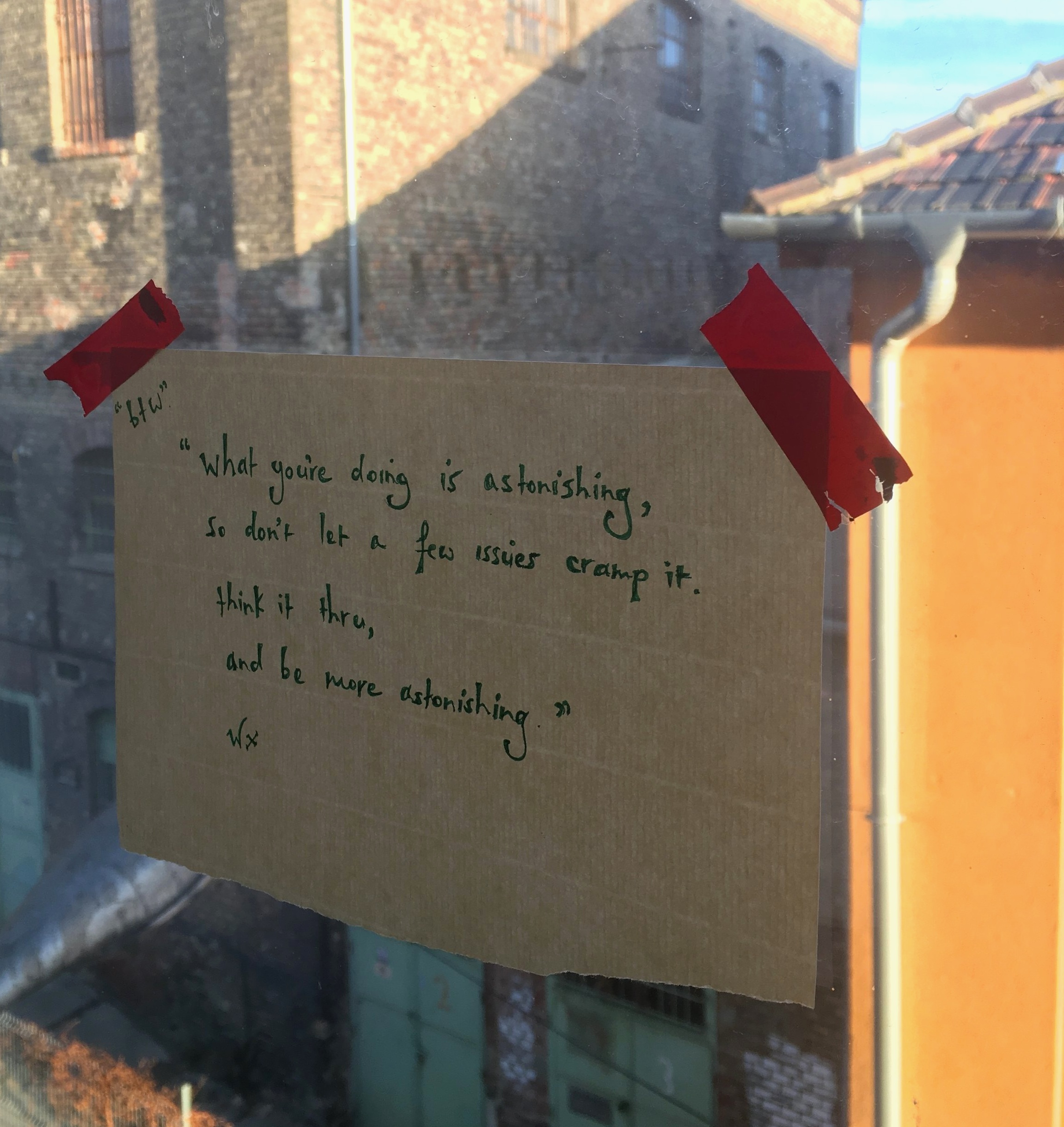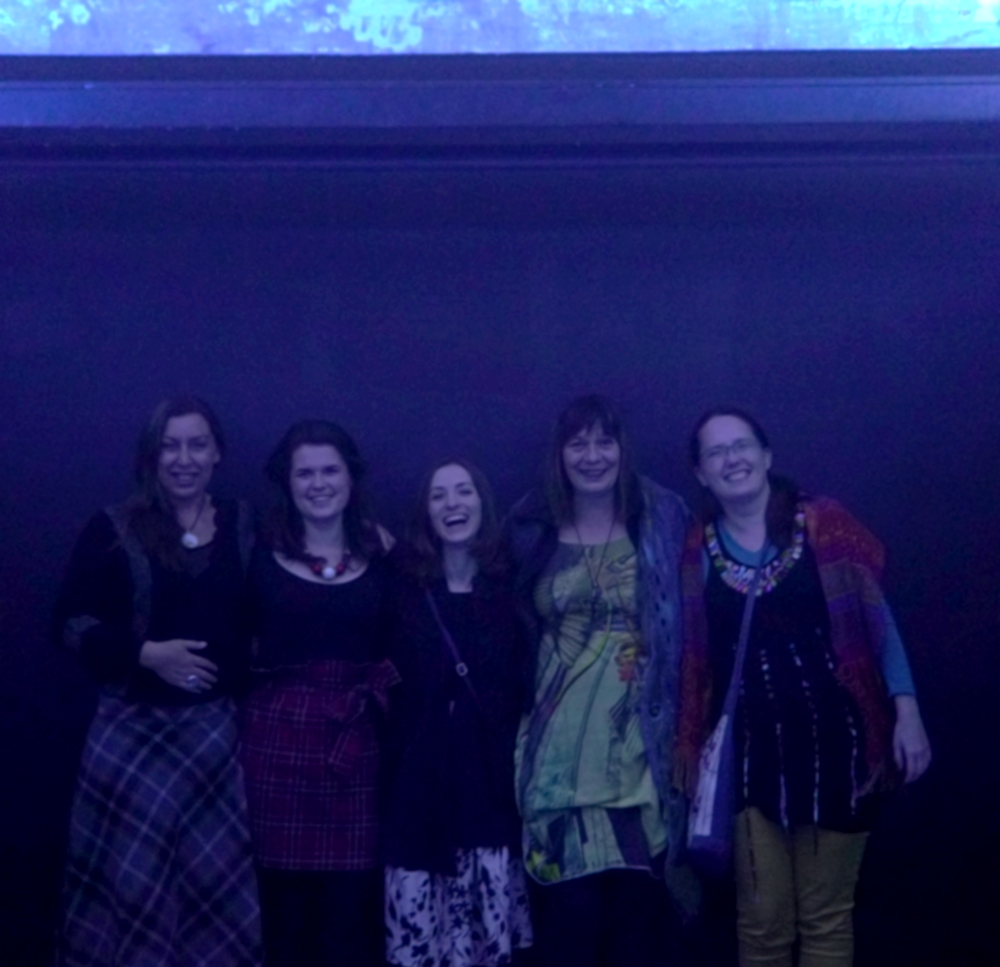4DSOUND Sonority I: magyar – Dancing on Blades
Residency, Spatial Sound Institute, Art Quarter Budapest June - December 2018
The 4DSOUND system is a large scale integrated hardware and software installation creating a fully omnidirectional sound environment. The system utilises an innovative computer interface and multi-speaker array to enable sound designers to work sculpturally with sound. 4DSOUND and the Spatial Sound Institute in Budapest are researching “how spatial sound is intertwined with a broader cultural movement that propagates self-awareness, social cohesion and sustainability … leading to a new Ecology of Listening – improving the quality of our listening environment to enhance our mental and physical state of being.”
In residence at the SSI through June-December 2018, I developed a work in collaboration with the place and the people of Hungary, exploring the speaking voice, the story and the storyteller as compositional elements in a spatial sound work.
The residency encompassed field recordings of the Budapest and wider Hungarian and Transylvanian countryside, collaboration with storytellers, dancers and musicians, and the practice of ‘deep listening’ and focused attention on the sounds of place in composing and presenting the work.
With this work my aim is to create profound experiences of deep listening using the natural rhythms of language and environment, the music of the spoken word and voice in harmony, and the power of story.
This project has been assisted by the Australian Government through the Australia Council, its arts funding and advisory body, and supported by the Victorian Government through Creative Victoria.
About the work
“Sonority I” is a one hour installation featuring six storytellers simultaneously telling the same folktale of the dancing princesses, in six dialects of the Hungarian (magyar) language. The seventh storyteller is the sound design, created with field recordings of environment, dance, and music from Hungary along with effects and electronic music elements to enwrap audiences in the story world. The fully immersive qualities of the 4DSOUND system enables this complex construction, as the voices and soundscapes sweep, circle, rise and fall, and traverse or fill the studio environment. Audiences are enveloped in an at once naturalistic and abstracted aural cinema. Working with filmmaker Ana Amorós López, Greenaway explores the edges of visual / aural attention through the sparse, abstracted use of projected video as light. The storytellers appear during the opening period of listening preparation in small “portals” of low projected light on the black walls of the studio, diffused by haze, and surrounded by the environmental sounds of each region that locate them in the six regions represented by their folktale versions. These faces then fade as their stories begin, and the only visual information is in suggestions of colour and mood through Ana’s magnified and abstracted film, which responds to the progression of the story enhancing the physical space with colour. The physical nature of projected light, its interactions with dust particles and haze, works in concert with the heightened sense of the physical nature of sound that the 4DSOUND system enables.
Presented at the Spatial Sound Institute, Art Quarter Budapest,
30 November 2018, part of the Central European Society for Soundscape Ecology (CESSE) Conference and 4DSOUND ‘Inaudible Realities’ event.
Source folk tale: 'The Dancing Princesses’ (ATU 306)
Story & Creative Consultant, Translator: Zalka Csenge
Storytellers: Szabó Enikő, Nagy Enikő, Kovács Marianna, Lovászi Irén, Szeleczki Mónika, Zalka Csenge
Video footage and exhibition projection: Ana Amorós López
Dancers: Bitó Katalin, Vass Józsi
Song in opening performed by the Szkojáni Charlatans: Kjaratan Code (vocal/violin), Bitó János (accordion), Valentin Desmarais (double bass)
Music and dance, and finale folk song recorded at the Mezőség summer camp at Válaszút, August 2018
The story of the dancing princesses
The folktale type of the Dancing Princesses is very popular in Hungarian tradition. It is the story of a group of princesses (three, seven, or twelve, depending on the text) who sneak out of their palace every night and go into a magical realm to dance their shoes to shreds. They are not found out until a brave (male) hero secretly follows them on their nighttime journey. He discovers that they open a trapdoor in their room (or fly out the window, or otherwise sneak out, depending on the version) and pass through copper, silver, gold (sometimes diamond) forests, across a lake, and into a fabulous palace where they dance all night with princes/devils. He brings proof of his adventures to the king and in the end, he either marries one of the princesses or is otherwise rewarded, while the princesses are either married off or punished for their escapades.
Read synopses of all six versions of the folktale















